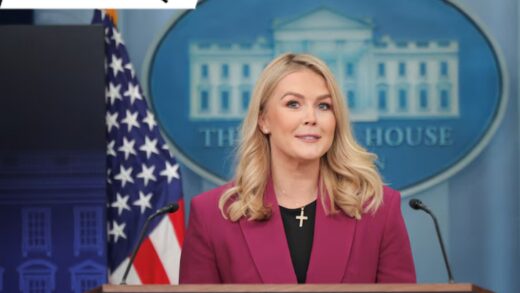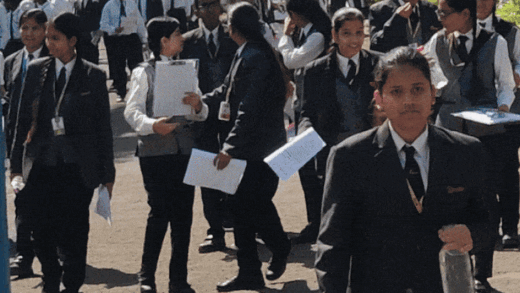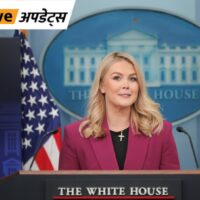Rob Manfred is probably right.
It is way too early to start worrying about what might happen in December 2026, when the Collective Bargaining Agreement between Major League Baseball players and owners expires.
There are two full seasons to enjoy between now and then, providing precious opportunities to watch Aaron Judge, Juan Soto and Bobby Witt Jr. mash baseballs, to watch Paul Skenes and Tarik Skubal make batters look foolish and to watch Shohei Ohtani both mash baseballs and make batters look foolish.
Except every time Manfred and his bosses open their mouths, they remind us of the uncertainty presented by 2027 — and beyond.
“I’m not going to speculate about what we’re going to propose, what we’re going to try to negotiate with the MLBPA — we’re a year away,” Manfred told reporters during his spring training tour in Arizona last week. “I owe it to the owners to give them an opportunity to coalesce around a bargaining approach.”
You do not need to be a master in corporate double talk to figure out the “bargaining approach” for owners — emboldened by a common enemy in the free-spending Los Angeles Dodgers, who signed Ohtani to a heavily deferred 10-year deal last winter and won the World Series before spending almost half a billion dollars this winter on 11 players — is going to include the words “salary cap.”
“If I’m going to be critical of something, it’s not going to be the Dodgers,” Manfred said. “It’s going to be the system.”
While owners have always desired a salary cap like the ones in the other major sports, they have not pushed for one since the 1994 strike, which lasted 232 days and forced the cancellation of the World Series. The 1995 season was days away from beginning with replacement players when a preliminary injunction against owners was issued in the Southern District of New York by Sonia Sotomayor, who is now a Supreme Court justice.
Thirty years later, the words from owners suggest they are gearing up to take another shot at implementing a salary cap — or at least not opposed to watching their peers try.
“I wish it would be the case that we would have a salary cap in baseball the way other sports do, and maybe eventually we will, but we don’t have that now,” Orioles owner David Rubenstein told Yahoo Finance in January.
Yankees owner Hal Steinbrenner, whose father, George, turned the Yankees into six-time champions by collecting superstars with no regard to payroll, said he would not be opposed to a salary cap, though he added he would want it to come with a salary floor. (This, beards and no more “New York, New York” after losses — what a week in the Bronx.)
Even Steve Cohen, the mega-billionaire Mets owner who signed Soto for $765 million and for whom the Cohen Tax — a 110% tax assigned to teams for every dollar they spend on payroll above $301 million — is named, shrugged off a question about a potential salary cap last week by saying he will “… compete under any circumstances.”
The MLBPA, under executive director and former big league first baseman Tony Clark, has remained steadfastly opposed to a salary cap, so a lengthy work stoppage would almost certainly ensue if the owners pushed for the cap.
Manfred was proud the lockout in 2022 did not result in any canceled regular season games. But would Manfred, who began his career as an outside counsel to baseball’s owners in the 1980s and said he plans to step down as commissioner in 2029, be willing to risk a lengthy work stoppage if the potential reward was a legacy-defining salary cap owners have been chasing for decades?
And what if the task of winning a salary cap was made easier because the union was fractured from within? While the Judges, Ohtanis and Sotos of the world have continued to earn nine-figure contracts, the middle class has been increasingly squeezed out. Former All-Stars such as Jose Iglesias, Craig Kimbrel, J.D. Martinez, Whit Merrifield, Jose Quintana and Anthony Rizzo all remain unsigned as March nears.
There were signs of a divide during the 2022 negotiations, when the CBA was approved by the union in a 26-12 vote that included nays from all eight executive subcommittee members, a group that included Max Scherzer, Andrew Miller and Gerrit Cole. Miller retired after the lockout, while Scherzer and Cole are no longer on the subcommittee.
“Quite frankly, I owe it to our fans not to get into all this too early,” Manfred said. “I mean, it’s bad enough when you’re doing it and bargaining and everybody’s worried about it. We’re just not there yet.”
Oh yes, we are.
#Thought #MLB #Lockout #Bad #Wait #Deadspin.com
Source link
#Thought #MLB #Lockout #Bad #Wait #Deadspin.com


















